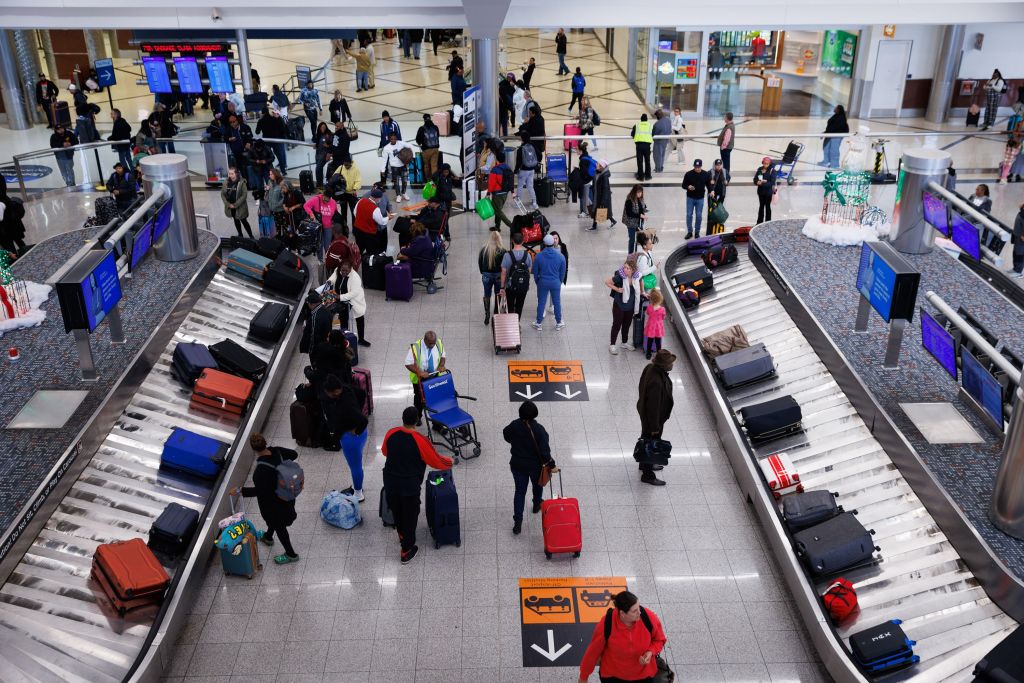By Jay L. Zagorsky | CNN
Five out of the six biggest US airlines have raised their checked bag fees since January 2024.
Take American Airlines. In 2023, it cost $30 to check a standard bag in with the airline; today, as of March 2024, it costs $40 at a US airport – a whopping 33% increase.
As a business school professor who studies travel, I’m often asked why airlines alienate their customers with baggage fees instead of bundling all charges together. There are many reasons, but an important, often overlooked cause is buried in the US tax code.
A tax-law loophole
Airlines pay the federal government 7.5% of the ticket price when flying people domestically, alongside other fees. The airlines dislike these charges, with their trade association arguing that they boost the cost to the consumer of a typical air ticket by around one-fifth.
However, the US Code of Federal Regulations specifically excludes baggage from the 7.5% transportation tax as long as “the charge is separable from the payment for the transportation of a person and is shown in the exact amount.”
This means if an airline charges a combined $300 to fly you and a bag round-trip within the US, it owes $22.50 in tax. If the airline charges $220 to fly you plus separately charges $40 each way for the bag, then your total cost is the same — but the airline only owes the government $16.50 in taxes. Splitting out baggage charges saves the airline $6.
Now $6 might not seem like much, but it can add up. Last year, passengers took more than 800 million trips on major airlines. Even if only a fraction of them check their bags, that means large savings for the industry.
How large? The government has tracked revenue from bag fees for decades. In 2002, airlines charged passengers a total of $180 million to check bags, which worked out to around 33 cents per passenger.
Today, as any flyer can attest, bag fees are a lot higher. Airlines collected over 40 times more money in bag fees last year than they did in 2002.
When the full data is in for 2023, total bag fees will likely top $7 billion, which is about $9 for the average domestic passenger. By splitting out the cost of bags, airlines avoided paying about half a billion dollars in taxes just last year.
In the two decades since 2002, flyers paid a total of about $70 billion in bag fees. This means separately charging for bags saved airlines about $5 billion in taxes.
It seems clear to me that tax savings are one driver of the unbundling of baggage fees because of a quirk in the law.
The US government doesn’t apply the 7.5% tax to international flights that go more than 225 miles beyond the nation’s borders. Instead, there are fixed international departure and arrival taxes. This is why major airlines charge $35 to $40 for bags if you’re flying domestically, but don’t charge a bag fee when you’re flying to Europe or Asia.
Do travelers get anything for that money?
This system raises an interesting question: Do baggage fees force airlines to be more careful with bags, since customers who pay more expect better service? To find out, I checked with the Bureau of Transportation Statistics, which has been tracking lost luggage for decades.
For many years, it calculated the number of mishandled-baggage reports per thousand airline passengers. The government’s data showed mishandled bags peaked in 2007 with about seven reports of lost or damaged luggage for every thousand passengers. That means you could expect your luggage to go on a different trip than the one you are taking about once every 140 or so flights. By 2018, that estimate had fallen to once every 350 flights.
In 2019, the government changed how it tracks mishandled bags, calculating figures based on the total number of bags checked, rather than the total number of passengers. The new data show about six bags per thousand checked get lost or damaged, which is less than 1% of checked bags. Unfortunately, the data doesn’t show improvement since 2019.
Is there anything that you can do about higher bag fees? Complaining to politicians probably won’t help. In 2010, two senators tried to ban bag fees, and their bill went nowhere.
Given that congressional action failed, there’s a simple way to avoid higher bag fees: travel light and don’t check any luggage. It may sound tough not to have all your belongings when traveling, but it might be the best option as bag fees take off.
Editor’s note: Jay L. Zagorsky is an associate professor of markets, public policy and law at Boston University.
The-CNN-Wire
™ & © 2024 Cable News Network, Inc., a Warner Bros. Discovery Company. All rights reserved.
